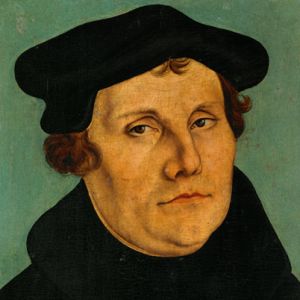This Day In History: October 31st
October 31, 2016
In the year 1517, theology professor Martin Luther nailed a document to the doors of the Castle Church in Wittenberg, Germany. The paper he published came to be known as the 95 Theses, a criticism of the Catholic Church. This sparked the Protestant Reformation, which involved the emergence of different interpretations of Christianity and the Bible, like Lutheranism, Calvinism, and more. Luther’s bravery caused one of the greatest religious revolutions of all time, even when he knew that he would face threats of death from very powerful people.
Johann Tetzel, a German preacher, was in the practice of selling indulgences to churchgoers. This piece of paper would be sold to those interested in placing a spot for themselves in heaven or having a loved one stuck in purgatory sent to heaven immediately. Simply put, this practice was a system of abuse set by the Catholic Church to feed off of those mourning or worried of their judgement by God. This practice was strongly opposed by Martin Luther. Tetzel could be said to be responsible for Luther’s frustration, causing him to write the 95 Theses in the first place.
The wide distribution of this document, written in both Latin and German, caused it to make its way to Rome, which caught the eye of Pope Leo X. While efforts were made to discourage Luther to quiet down, he refused. Leo responded by excommunicating Luther from the Catholic Church. When brought to Holy Roman Emperor Charles V, Luther again refused to retreat from his ideals, thus causing Charles V to issue the Edict of Worms. This was an official statement that forbade anyone to defend Martin Luther in any way, and also gave people the right to kill Luther with no consequence.
In response to this, Prince Frederick, or Frederick the Wise, protected Luther for the remainder of his life. During this period, Luther translated the Bible from Latin to German, a process that took 10 years. Before the Bible was translated into the vernacular, it was solely in Latin. Luther opposed this idea, believing that everyone should have the opportunity to read the Bible, not just clergymen, which coincided with his belief that the Bible is the true authority, not the clergy.
Thanks to Martin Luther, humanity was shown an example of a revolutionary idea and how quickly it could spread and change the world. Many different branches of Christianity began to appear, all of which believed that the Church needed some type of reform. Luther shed light to this problem and changed the world forever.


